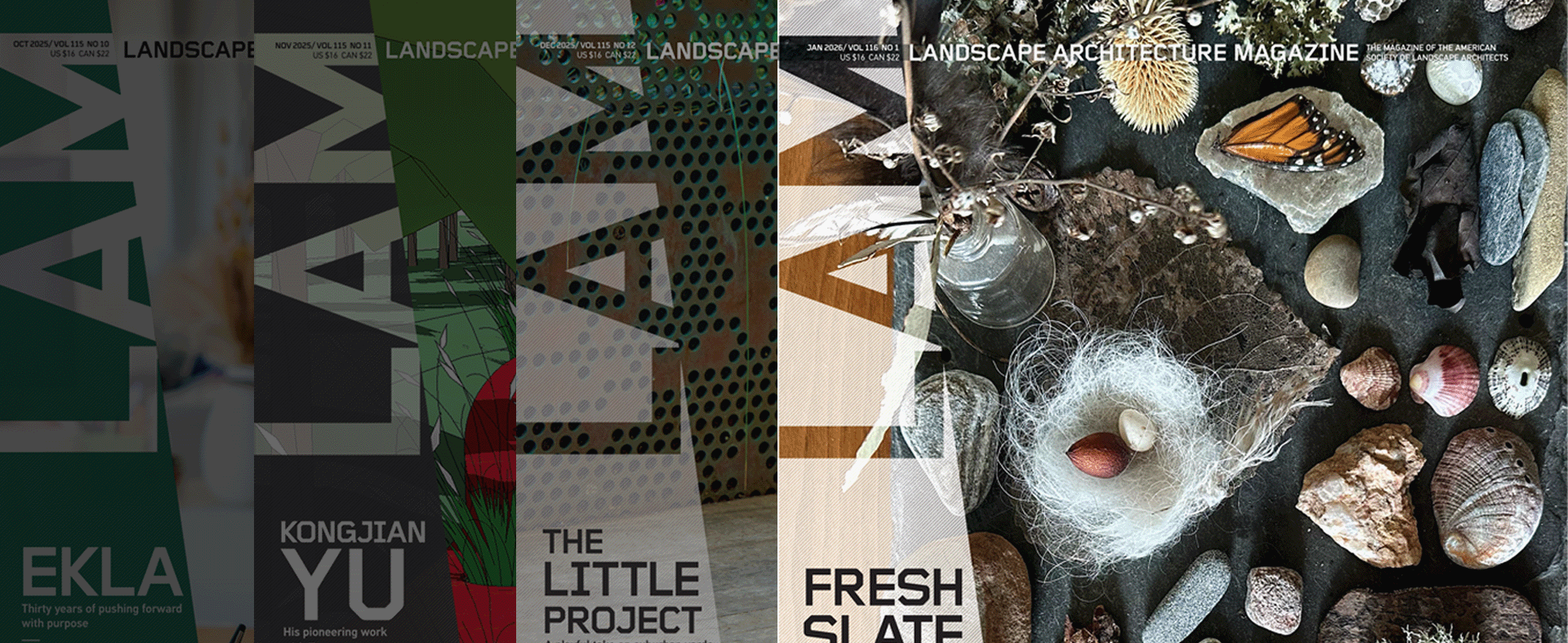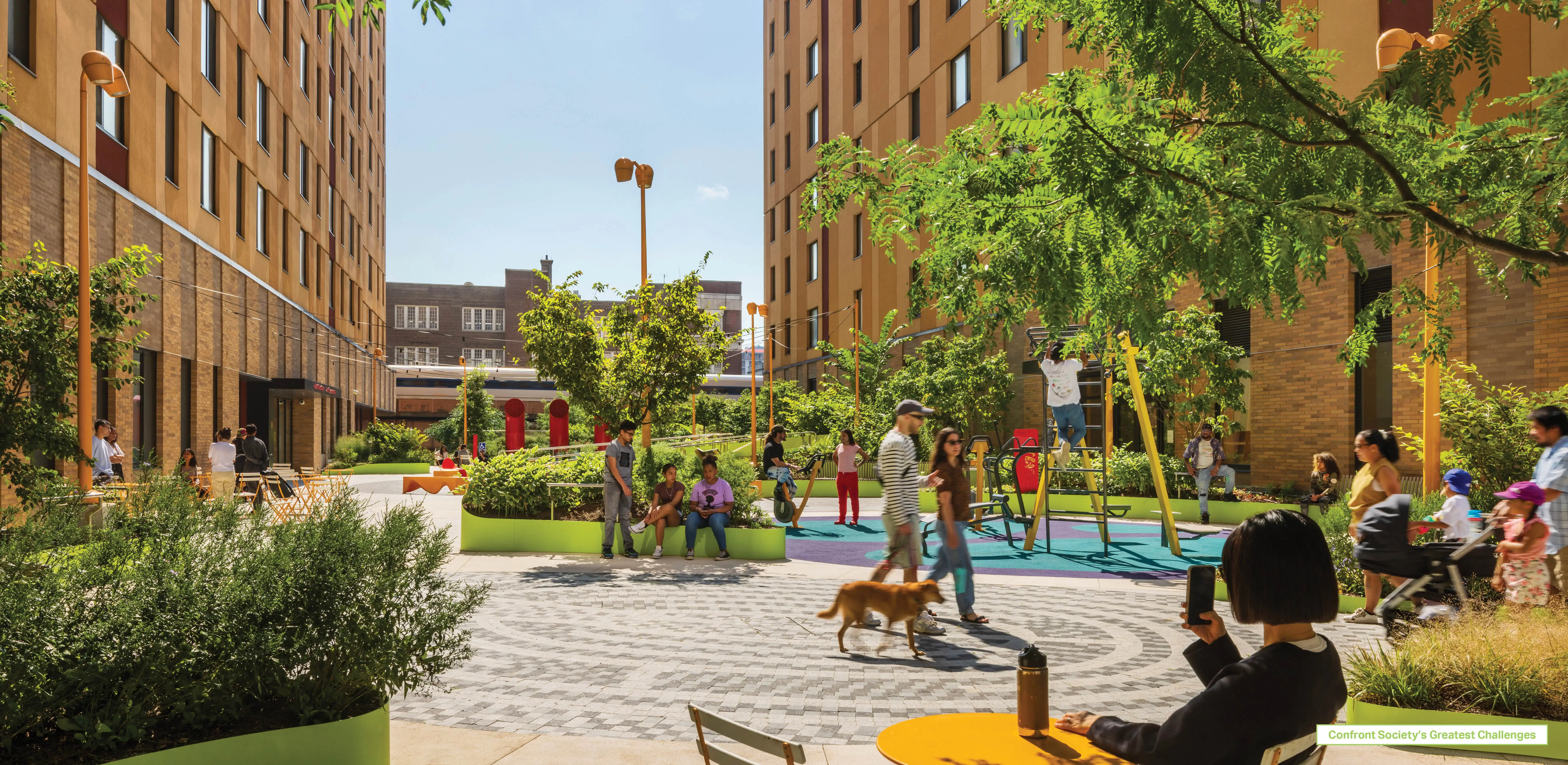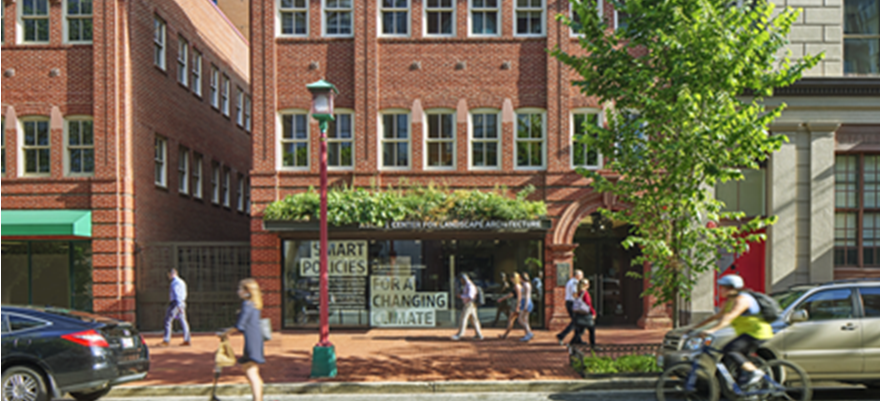2018 ASLA Student Awards
Coming Soon
We’re excited to share this new experience and will continue to add and refine content. If something isn’t working as expected, please let us know.
Achieving global, social, and environmental change through landscape architecture, investing in research, education, and community outreach for a sustainable future.
Make a Donation
Advocate, learn, and grow with a vibrant community dedicated to shaping a better world.
Learn about Membership
The profession’s magazine of record—offering insight, ideas, and inspiration from the landscape architects shaping places worldwide.
Read LAM
The ASLA Professional and Student Awards honor the best projects and research worldwide. Register by the Early Bird deadline to lock the lowest rate.
Register by Jan. 9
A guide to the skills, education, and work behind the places that shape daily life—and the people who design them.
Start Your Path

Achieving global, social, and environmental change through landscape architecture, investing in research, education, and community outreach for a sustainable future.
Make a Donation.webp?language=en-US)
Advocate, learn, and grow with a vibrant community dedicated to shaping a better world.
Learn about Membership
The profession’s magazine of record—offering insight, ideas, and inspiration from the landscape architects shaping places worldwide.
Read LAM
The ASLA Professional and Student Awards honor the best projects and research worldwide. Register by the Early Bird deadline to lock the lowest rate.
Register by Jan. 9
A guide to the skills, education, and work behind the places that shape daily life—and the people who design them.
Start Your Path
Coming Soon